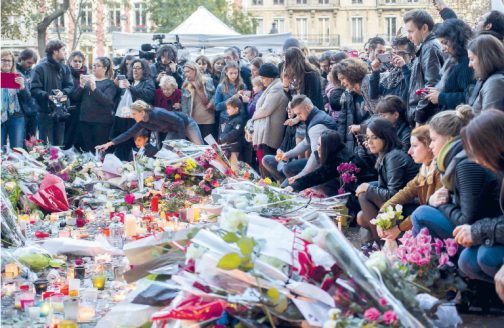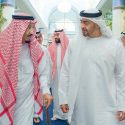Europe’s Underestimated Islamists and its Exporters

It almost seemed as if international jihadism was on the retreat: the so-called caliphate also known as the Islamic State (IS) or by its Arabic acronym Daesh destroyed, the so-called caliph killed, his followers scattered to the winds. But five years after the devastating attack on the Bataclan in Paris, the fanatics in Europe are back. A wave of attacks carried out by Islamist militants in Paris, Nice, Dresden, Vienna and Lugano over the past few weeks is raising alarm, with European security officials saying that they fear more violence. Has religious extremism been underestimated? Is Europe ready to face this ongoing challenge? This was reason enough for the Conference of European Rabbis and the newly founded Institute for Freedom of Faith and Security in Europe (IFFSE) to kick off a new series that will debate new ideas among Europe’s leading thinkers and policymakers for how to combat religious extremism and terrorism in Europe. The first such debate took place last Friday.
The online discussion was moderated by the prestigious security expert Professor Peter Neumann, from King’s College London. During the session former French Prime Minister Manuel Valls spoke out in favour of creating a “European Islam”. “The idea is to sever ties with the countries of origin,” Valls said. As he admitted the undertaking will certainly not be easy, and may take decades, but it is “unavoidable”. Valls supported President Macron’s plan to allow and certify the training of imams only in Europe. He called, for example, the financing of Islamic communities from Qatar “a danger”. He also pointed out that Turkish President Erdogan wanted to exercise control over Islam.
North Rhine-Westphalia’s Minister President Armin Laschet pointed out that, in the tradition of France, there is a strict separation between church and state. In Germany, he said, the state could not so easily ban church services. Before Erdogan, Turkey had also been a secular state. In individual cases, Erdogan had brought Turkish domestic politics, such as the fight against the Gülen movement, into mosques. But this had to be differentiated from Wahabism and Salafism in other Islamic communities. During the debate, Armin Laschet called for more European cooperation to curb Islamist extremism. “This is a struggle that we can only fight together as Europeans. It is not a national issue”.
The Austrian Minister for Integration and Women, Susanne Raab underlined that Europeans must tackle the challenge of terrorism and religious extremism together. This is not a fight against Muslims or migrants. Religious extremism such as Political Islam seeks to divide society. They are not attacks on individuals, but “on our democratic principles and values”.
“Those who only fight extremists when they become terrorists have lost,” warned the German expert on Islamism, Ahmed Mansour. Jihadists are only the tip of the iceberg, he said; you have to find the spiritual instigators. In recent years, Europe has learnt a lot in terms of security concepts, deradicalisation and prevention. But there is still a lack of European and global cooperation between the authorities, “the flow of communication must be improved”. Mansour said it is not only a matter of distancing oneself from violence, but also of educating people about democracy. This has to do with maturity, the ability to endure discourse, freedom of opinion, victim roles and images of the enemy. This is “a huge task for Muslims” who need support from the government.
Extremism expert Julia Ebner, from the Institute for Strategic Dialogue (ISD), said that the attack in Vienna had shown that prisons do not help integration. During the coronavirus pandemic, integration had become even more difficult. On a separate topic, the influence of radicalisation in online spaces is growing massively. “An identity crisis is the lowest common denominator of radicalised jihadists and also of right-wingers,” said Ebner. At the same time, Muslims should not generally be driven into a corner, and one should approach the community.
The President of the Conference of European Rabbis Chief Rabbi Pinchas Goldschmidt, referred to a manifesto his organisation published in 2015 and renewed the demand that the training of religious leaders must in the future take place in Europe and be certified according to a strict catalogue of criteria, including the obligation to show loyalty to the laws of individual countries, to profess peace and tolerance and to communicate this to their communities.
Member of the British House of Commons and former Special Envoy for Freedom of Religion and Belief, Rehman Chishti, agreed with Rabbi Goldschmidt and pleaded for more financial transparency in mosque communities. He said that due to strict regulations, the UK has already had good experience in this area and that more discussions in Europe about these practical experiences is needed. Chishti also said that every religious leader is called upon to expose attempts to abuse God for crimes.
After one hour of debate it was clear. Such a debate was long overdue and the IFFSE initiative has come at just the right time. One of the major goals in the next few years will be to depoliticise Islam, to make it more independent from foreign powers such as Iran, Qatar, Saudi Arabia or Turkey and to make it more European. We all need to remember that the story of European Islam is not a new one – it goes back 14 centuries, and it has roots across the Continent. Its now up to politicians and religious leaders across Europe to foster moderate religious practices and promote peaceful coexistence, integration and positive citizenship based on European values.
OLIVER ROLOFS
is Managing Partner of the strategy consultancy connecting trust and a regular author on security policy issues.



